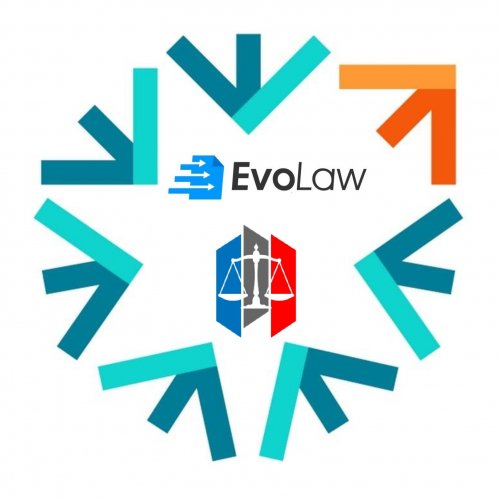Best Bankruptcy & Debt Lawyers in San Salvador
Share your needs with us, get contacted by law firms.
Free. Takes 2 min.
List of the best lawyers in San Salvador, El Salvador
About Bankruptcy & Debt Law in San Salvador, El Salvador
Bankruptcy and Debt Law in San Salvador, and El Salvador in general, is primarily governed by the Commercial Code of El Salvador, which dictates the rules and procedures for declaring bankruptcy, voluntary closure of businesses, and reorganization of debts. The Bankruptcy Law in El Salvador is more focused on liquidation, rather than rehabilitation. It is designed to distribute the debtor's assets among its creditors and eventually extinguish the company's legal existence.
Why You May Need a Lawyer
If you are facing overwhelming levels of debt, or your business is insolvent and unable to settle financial obligations, it is advisable to seek legal counsel. A lawyer who specializes in bankruptcy and debt law can help you understand your rights, protect your assets, and navigate the complex legal procedures involved in bankruptcy. They can also assist with negotiating with creditors, preparing necessary documents, and representing you throughout the bankruptcy process.
Local Laws Overview
The Commercial Code outlines procedures for both voluntary and involuntary bankruptcy. Voluntary bankruptcy is when a company recognizes its insolvency and voluntarily agrees to liquidate its assets, while involuntary bankruptcy occurs when creditors initiate legal proceedings to declare a corporation bankrupt. Once a company is declared bankrupt, the law provides mechanisms for restructuring and repaying debts. The law also prohibits bankrupt individuals from engaging in commercial activities unless they have fully repaid their debts.
Frequently Asked Questions
1. Can I file for personal bankruptcy in El Salvador?
While the Bankruptcy Law in El Salvador primarily focuses on businesses, an individual facing insurmountable debts could also file for bankruptcy with the help of a lawyer.
2. What happens when a company is declared bankrupt?
Once a company is declared bankrupt, its legal existence is usually extinguished, with their assets being liquidated to repay existing debts. The management of the company is turned over to a trustee, who oversees the liquidation process.
3. Can I continue to operate my business during bankruptcy?
Generally, a business undergoing bankruptcy proceedings will be taken over by a court-appointed trustee, who handles the management of assets and coordinates between debtors and creditors. Therefore, you may not have control over your business during this time.
4. How are the debts paid after a company is declared bankrupt?
The trustee sells the bankrupt company's assets and uses the proceeds to pay off the debts. The debts are typically paid in the order of their legal priority, with any remaining funds being returned to the company.
5. Can bankruptcy be discharged in El Salvador?
Unlike in some other countries, El Salvador does not provide for the discharge of bankruptcy, meaning the individual or company cannot be freed from the obligation to pay off the remaining unpaid debts even after the bankruptcy case is closed.
Additional Resources
You can refer to the Commercial Code of El Salvador, available in public law libraries, for detailed information. The Supreme Court of El Salvador's website also provides valuable legal information and resources. Non-profit organizations that provide legal assistance may also be of help, particularly to individuals who cannot afford a private attorney.
Next Steps
If you find yourself in need of legal assistance, it is advisable to hire a local lawyer who specializes in bankruptcy and debt law. It’s important to gather all financial documents and information about your current financial status, as this will be crucial for your lawyer to assess your case and guide you through the next steps. It’s also beneficial to familiarize yourself with the local laws pertaining to bankruptcy to better understand what to expect in the process. Do remember to act responsibly and honestly in all your disclosures to your attorney and the court.
Lawzana helps you find the best lawyers and law firms in San Salvador through a curated and pre-screened list of qualified legal professionals. Our platform offers rankings and detailed profiles of attorneys and law firms, allowing you to compare based on practice areas, including Bankruptcy & Debt, experience, and client feedback.
Each profile includes a description of the firm's areas of practice, client reviews, team members and partners, year of establishment, spoken languages, office locations, contact information, social media presence, and any published articles or resources. Most firms on our platform speak English and are experienced in both local and international legal matters.
Get a quote from top-rated law firms in San Salvador, El Salvador — quickly, securely, and without unnecessary hassle.
Disclaimer:
The information provided on this page is for general informational purposes only and does not constitute legal advice. While we strive to ensure the accuracy and relevance of the content, legal information may change over time, and interpretations of the law can vary. You should always consult with a qualified legal professional for advice specific to your situation.
We disclaim all liability for actions taken or not taken based on the content of this page. If you believe any information is incorrect or outdated, please contact us, and we will review and update it where appropriate.
Browse bankruptcy & debt law firms by service in San Salvador, El Salvador
San Salvador, El Salvador Attorneys in related practice areas.







